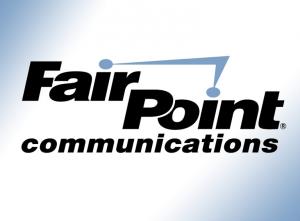Multiple States Give Green Light to Sale of FairPoint Communications

Over the course of the last few months, a number of state regulatory agencies have considered the proposed acquisition of a local exchange carrier (LEC) group, FairPoint Communications, by a telecommunications conglomerate, Consolidated Communications Holdings. FairPoint, through several incumbent LEC subsidiaries, provides traditional voice service, as well as data and broadband service, in 17 states. Despite operating in so many jurisdictions, however, its subscriber base is relatively small. As an example, it has a total of only about 377,000 residential customers, largely because it tends to offer service in rural, less populated, and more geographically diverse areas.
The Consolidated Holdings family includes both incumbent and competitive LECs, with the former found in five states and the latter in 11 states. Its focus in recent years has been on extending high-speed broadband Internet access service. It presently has significantly more subscribers than does FairPoint.
Under the deal negotiated by Consolidated Holdings and FairPoint, a separate entity will be established strictly for the purpose of facilitating the transaction. That merger subsidiary will acquire all of FairPoint's outstanding equity interests in exchange for Consolidated's stock, which was pegged at a value of $1.5 billion. After completion of the financial end of the sale, FairPoint will become a direct, wholly owned subsidiary of another Consolidated Holdings affiliate, Consolidated Communications, Inc.
The proposed merger raised a number of questions in many states, mostly with respect to how to treat FairPoint's outstanding debt. Those concerns notwithstanding, all of the states eventually okayed the deal, with the Georgia Public Service Commission (PSC) and the Pennsylvania Public Utility Commission being among the first. In Georgia, the merger was approved via a PSC staff letter in February (Docket 4515), while Pennsylvania authorized the acquisition in March (A-2017-2583431).
The Federal Communications Commission (FCC) weighed in in early May, finding that while the two companies may have exaggerated the extent of cost savings anticipated to result from the transaction, there was a reasonable likelihood that consumers would see at least some level of net economic benefits upon consummation of the deal. The FCC also noted that Consolidated Holdings has been involved in several LEC acquisitions in the past and has proven itself capable of successfully integrating new service areas acquired thereto.
The commission similarly found that Consolidated's emphasis on broadband expansion would bring affirmative benefits to FairPoint subscribers. It observed that for too many existing FairPoint customers, the availability of broadband service had become an unfulfilled promise on the part of the LEC.
Despite its general satisfaction with the proffered merger, however, the FCC voiced certain reservations about the merger plan. In particular, it said, it remained wary of the merger terms on service quality improvements. The commission stated that because the parties had not incorporated firm service quality commitments in their merger agreement, it was difficult to ascertain and quantify how service quality will be affected on a post-merger basis. In the end, though, the FCC held that the potential for positive public interest benefits outweighed the risks of adverse impacts, making it appropriate to approve the acquisition. Re Consolidated Communications Holdings, Inc. and FairPoint Communications, Inc., WC Docket No. 16-417, May 8, 2017 (F.C.C.).
Soon after the FCC took action to authorize the merger to proceed, other states began to follow suit. Short summations of decisions from five of those states are presented separately for Illinois, Maine, New Hampshire, New York and Vermont.




